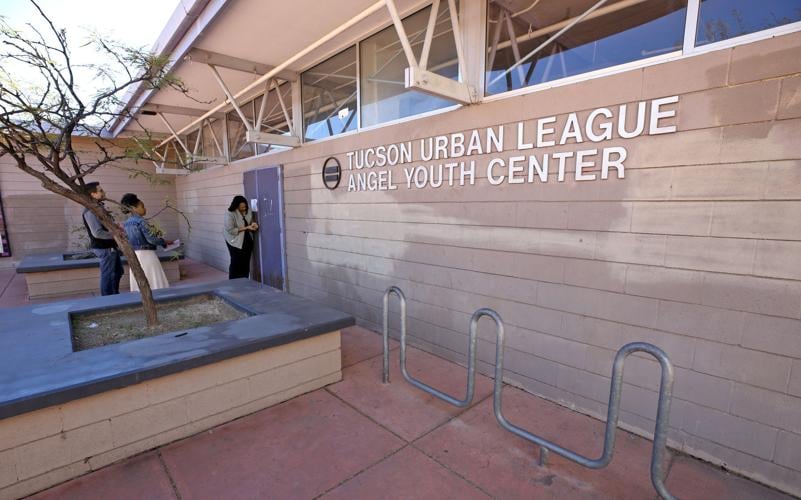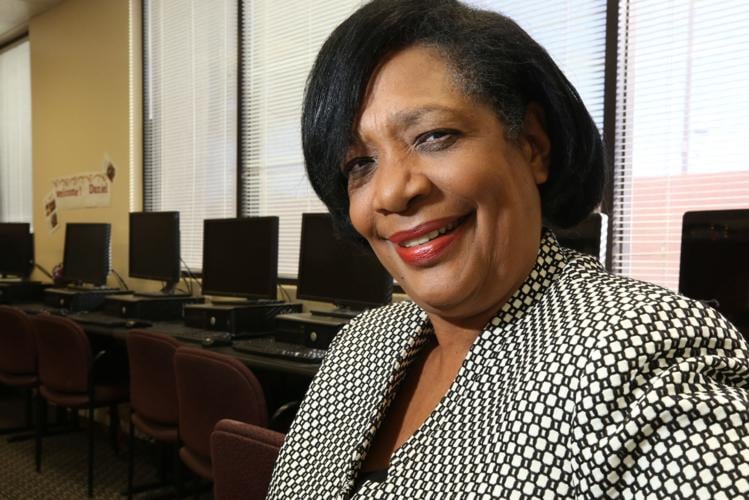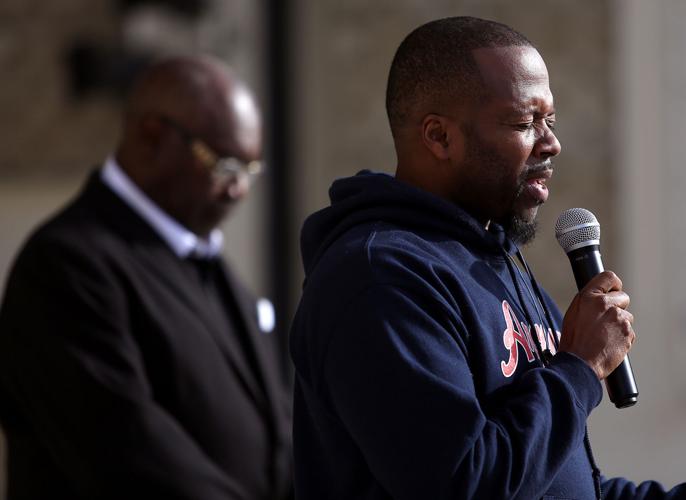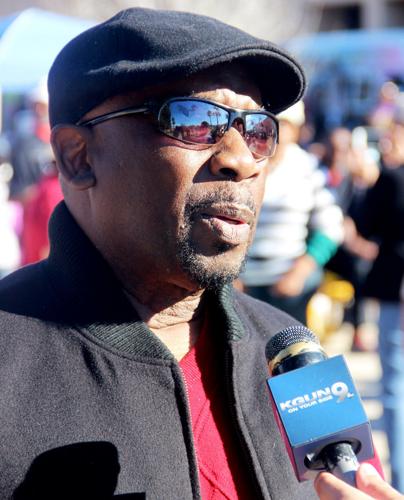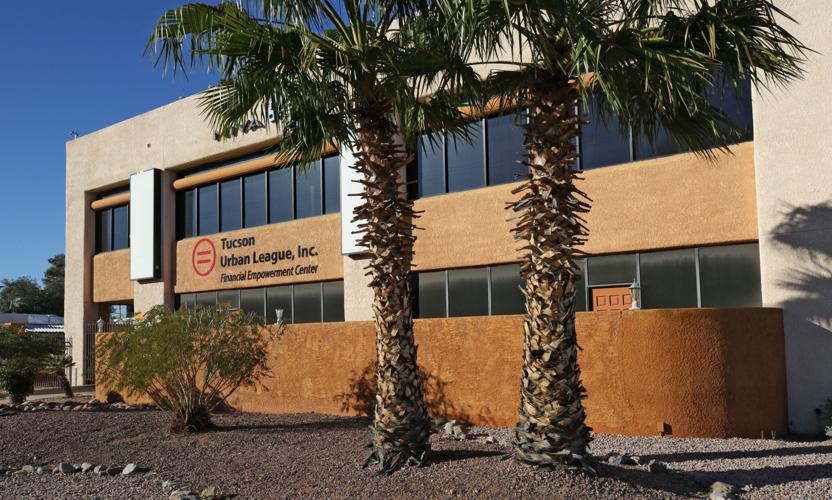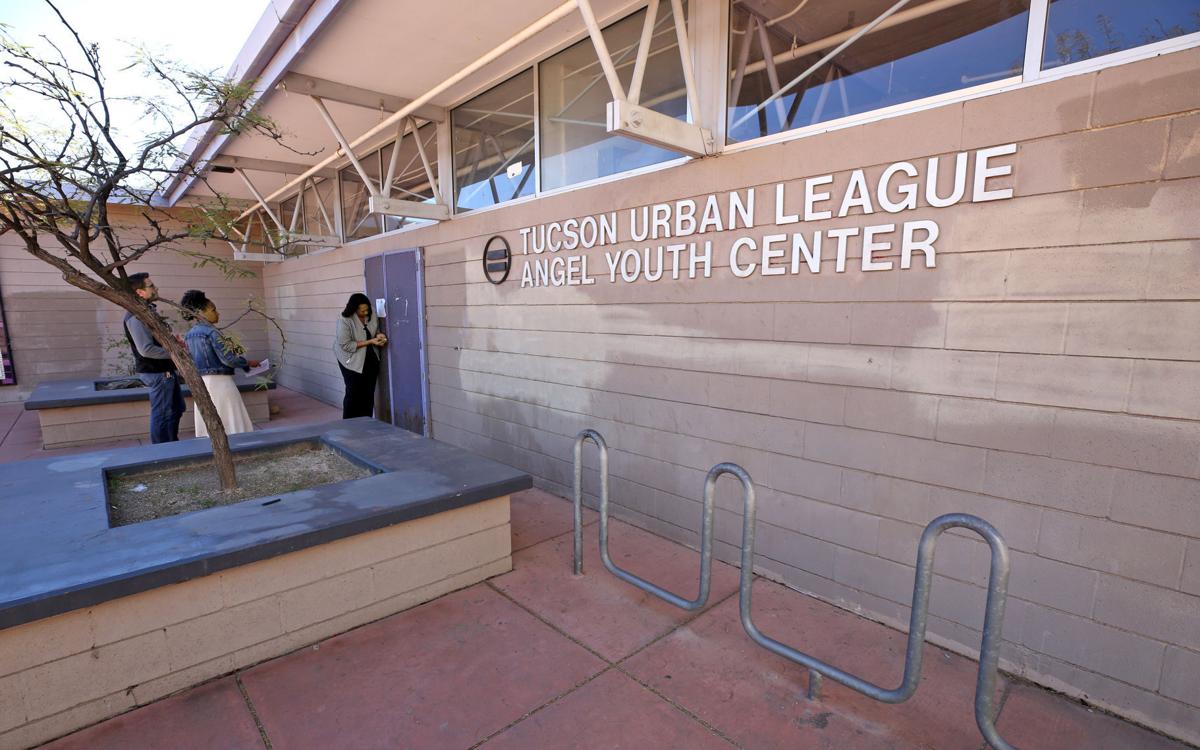The Tucson Urban League, which for 50 years helped low-income residents and people of color, ceased operating its last remaining programs in 2020 after years of financial problems that included amassing a large debt and improper usage of government grant money meant to pay for clients’ utility bills and home weatherizations, records and interviews show.
The nonprofit, which over the years grew and developed through strong leadership, successful fundraising, private donations and government grants, had amassed several properties, helping it secure a financial foothold for its many programs to meet the needs of primarily Black and Latino families.
It operated education, senior nutritional and homebuyer programs, weatherized homes to make them more energy-efficient and operated day-care centers, a preschool, after-school programs for at-risk youth and workforce training programs and job placements for teens and adults.
The work was carried out through millions of dollars of government grants and contracts. In addition to government funding, the league’s operating budget included grants from other nonprofits, fundraisers and donations. As part of the contracts for the grants and other financial assistance, the league was required to be financially solvent.
It wasn’t.
Deborah Embry, president and CEO of the league who resigned in July 2019, said the nonprofit was experiencing financial problems before she arrived in 2013. Under Embry, though, the league mismanaged government funding meant for two programs for low-income residents, several nonprofit audits and letters from the Arizona Department of Housing show.

Deborah Embry, president and CEO of the league who resigned in July 2019, says: “We were an organization that did too much. We were trying to be all things to all people.”
“As a CEO, I am responsible. No one goes in to misuse funds,” said Embry, who now lives out of state. “We were an organization that did too much. We were trying to be all things to all people. None of the programs were paying for themselves. They were cost reimbursement contracts that we could not afford.”
The league ultimately ended its participation in the programs, and in its last years closed many of its other community programs and sold off its assets to pay down its large debt. An effort to relaunch the league has begun, with organizers pledging to pay off the holdover debt as part of their plans.
An independent audit filed with the nonprofit’s tax documents stated in 2017 that the league’s financial situation “raises substantial doubt about its ability to continue as a going concern.” The audit also said league officers were “overriding internal controls related to cash management to cover other cash flows.”
One concern was how the league handled a program that helped residents with their utility bills and another that paid contractors to weatherize homes to make them more energy-efficient.
Both programs used federal funds — audit records show more than $2 million in each year 2016 and 2017 for the utility payment program alone — that were passed through to the league by state agencies, in these instances the Arizona Department of Economic Security and Department of Housing.
At one point, the league was using that federal money to pay its operational expenses instead of clients’ utility bills or contractors.
“Since July 1, 2018, it has been noted that TUL is several months behind on paying contractor invoices,” the Arizona Housing Department wrote in a letter to Embry in March 2019 about the weatherization funding. “ADOH has had previous verbal discussions with TUL regarding these issues and the plan for TUL to pay all past-due contractor invoices.”
In the utility program, the league was slow to pay clients’ utility bills — putting the residents at risk of having their utilities cut off, according to records and audits filed with its tax returns. On average, the league took 83 days to pay utility bills after receiving the funds from the Arizona Department of Economic Security, an audit reported in 2017.
Embry said the league did pay more than $600,000 in utility assistance bills that were owed to Tucson Electric Power and $26,000 to Southwest Gas several years ago after a federal audit. She said investigators found mismanagement and misuse of federal funds but no criminal wrongdoing. She said the federal money was used for the organization’s operational costs and the league would eventually make the payments but got behind.
The Housing Department said the league told the state agency it was going to sell one of its buildings and use the proceeds from that sale to pay the contractors. The state agency told the league it needed to improve its financial record-keeping and how it followed the rules of the various grant programs.
The state agency threatened to seek return of federal funds the league had received since July 2018 if the nonprofit did not make changes in its record-keeping, improve internal controls over funds and stop using grant funding meant for certain programs for other reasons.
Embry, who at one point was paid $90,975 by the league, said that years earlier she “tried to address the issues strategically. First, I laid off three administrative staffers and cut unfunded programs and looked at fixing rental properties the organization owned that were being mismanaged. But the fixing was constant because of the consistent cash flow problem.”
In response to the audits, other corrective action taken by the league included forming a “turnaround committee” to address the chronic cash flow problems the league experienced for years and create a plan for long-term sustainability. It also replaced its finance director with someone with more experience and added two CPAs to its governing board.
Before Embry’s hiring in May 2013 to lead the league, she worked for the city of Racine, Wisconsin, as director of the Mayor’s Office of Strategic Partnerships/Grant Facilitator to raise money to improve city programs, and she also administered the city’s grants.
League Restarting but facing large debt
As its financial problems mounted, the league began cutting back on applying for government contracts to run programs. It transferred a senior feeding program to Catholic Community Services, the weatherization program was taken over by the nonprofit Foundation for Senior Living and the Arizona Department of Economic Security utility program was given to Pima County to administer, records show.
In April 2020, less than a year after Embry left, the board of directors comprised of recently new members, shut down the league’s last programs and laid off the remaining 15 of at one time 160 employees. It paid down the more than $700,000 in debts to about $350,000, said Da’Mond Holt, board chair who is working to rebuild the board and revitalize the organization.

The Tucson Urban League paid down the more than $700,000 in debts to about $350,000, said Da’Mond Holt, right, board chair who is working to rebuild the board.
Its debts included paying off liens on its once longtime main headquarters at 2305 S. Park Ave. and an adjacent building that at one point served as a school, day-care facility and a jobs training and work development center. The properties sold for $550,000 in May 2020.
Liens on the properties that were paid off were two loans totaling $380,117 to Prestamos, a small-business finance company run by Chicanos Por La Causa, and $59,116 to Russett Southwest Corp., a heating and cooling company that did contract work for the weatherization program.
In 2018, the league moved from its Park headquarters to rented space for its offices and a day-care center for $5,000 a month at 3425 E. Grant Road. Embry’s plan at the time was that the properties on Park would be revitalized for about $1 million and become a hub for small businesses, but there was no restoration to the buildings and no businesses rented space. Embry said the board decided not to move forward with the project.
Once the league shut down, it moved into a small space at the Dunbar Pavilion, 325 W. Second St., and set up an administrative office from which members hope to bring the nonprofit back.
Holt said he believes the league will revive its work and “develop a robust strategy” with new board members and the support of the National Urban League. Holt said he has recruited 11 board members and he wants to reimagine the league.
“We still have a whole lot of work, and we do plan to pay off our debt. We are doing strategic planning right now and will look at a solvent plan to repay the debt,” said Holt, who did not yet have specifics on the plan.
The board also has about two months to file its 2020 annual report with the Arizona Corporation Commission to remain active and in good standing, or the nonprofit will be administratively dissolved, said Tanya Gibson, corporation division director.
Holt, who studied theology and has a doctorate in philosophy, is pastor of Pilgrim Rest Missionary Baptist Church, located in a blue-collar neighborhood north of East 36th Street and east of South Kino Parkway.
As a teen in Flint, Michigan, the Urban League helped him get his first job through a youth employment program, and he believes in the league’s foundation to help communities. He said the Tucson league is not closed and will work with young professionals in community services and community development, and also in civil rights and social justice issues.
Eventually, once the league repays its debt and is financially sound, he said he foresees it applying for government contracts to do work again in education, housing and work-force development. “I think we have the right players on our board to get there,” said Holt, explaining that it will take time to build the league’s credibility.
Holt said he began serving on the board in 2018 and he learned about the league’s financial problems, which led to the board’s decision to sell remaining properties and close programs.
Years of financial problems detailed
During the past decade, the league’s annual budget at its highest reached $8.6 million and at its lowest $2.3 million, and it had annual losses between $577,312 to $71,489, according to IRS reports compiled by ProPublica, an online journalism investigative site.

Clarence Boykins said he tried to save the league during a recent stint when he served as interim chief executive officer.
By 2017, the financial losses and “poor judgment and mismanagement” of the league’s operations charted the nonprofit for its downfall, said Clarence Boykins, who served as the interim chief executive officer from September 2019 until his resignation last May. Boykins, who was close to many of the original founders, was hired two months after Embry resigned in an effort to save the organization.
“I failed. I didn’t pull it off, but I gave it a shot,” said Boykins, a retired city employee who was director of the Tucson Convention Center and a longtime civil-rights activist and former head of the state and city chapters of the National Association for the Advancement of Colored People.
“I believe at some point in time the hard work and dedication to keep the league solvent was lost, but the need for the work it did was not,” said Boykins. “It isn’t just rebuilding the board, but it is about reassembling the right people who understand the need and the commitment. The board of directors needed to work to bring in money on a continuous basis to pay overhead costs and payroll. Otherwise just more bills were created,” he said.

Tucson Urban League building at 3425 E. Grant Rd., on Dec. 18, 2018.
Embry agreed with Boykins. “It all came down to cash flow. We had to raise a lot of money. We did not have the infrastructure in place to raise enough unrestricted dollars. We didn’t have the capacity internally or at the board level,” she said.
“No one realized the financial situation the league was in,” said Embry. “I truly believed we did not recognize the depth, the core of the problems. I extended the life of the Urban League, but maybe we should have closed down programs and started over like it was recommended by two board members in 2016. But we didn’t start over because I think the services that we provided were needed and were crucial. What I regret and hurts me the most is not getting rid of the high-cost contracts much sooner. I take responsibility. It happened on my watch, but I tried everything to make a go of the league because it was important.”
Boykins said the league was a diverse organization that helped people regardless of their race and there is a need for it to continue.
“The Urban League is needed for its work, and the question is how do you reestablish it now. People on the board need to answer two things. Can you do it? Do you want to do it? And if you want to do it but can’t, then you must go out and get help.”
These are the 11 Black Americans to serve in the US Senate
Hiram Revels, Republican
UpdatedHiram Revels was a former barber and minister who served in the US Senate from 1870-1871.
Mississippi lawmakers chose him to fill a vacant seat, although he faced fierce opposition from his future colleagues who questioned his citizenship. Their argument was based on a 1857 Supreme Court case that ruled African Americans could not become citizens of the United States.
Born a free man in 1827 -- the slavery era -- he was an army chaplain during the Civil War, working at churches in Kansas, Kentucky and Louisiana. After the war ended, he settled in Natchez, Mississippi, where he was an elder at the African Methodist Episcopal Church, and built a reputation as a respected community leader.
Mississippi was seeking readmission to representation in the US Congress and needed to fill two Senate seats that had been unoccupied since 1861, when it seceded from the Union. Revels was offered the shorter of two terms -- one set to expire in March 1871.
Revels took the oath of office 22 days after the ratification of the 15th Amendment, which held that Americans could not be denied the right to vote based on their race. Revels was "the 15th Amendment in flesh and blood," civil rights activist Wendell Phillips said.
Blanche K. Bruce, Republican
Updated
Sen. Blanche K. Bruce of Mississippi was the first African American to serve a full term in the US Senate.
Born into slavery, he could not attend school, so he sneaked in some lessons from a tutor hired for his master's son. He escaped at the beginning of the Civil War and taught Black students in Missouri before moving to Mississippi, where he held several jobs, including a county sheriff and tax collector.
Like Revels, he was elected to the US senate by the Mississippi state legislature, not voters. Bruce served from 1875 to 1881.
The former slave later became a plantation owner, and lived a privileged life that was a far cry from that of his Black constituents. Despite moving in elite circles, he fought for the rights of freed slaves and was a strong advocate for Black war veterans. But Black people in Mississippi questioned his commitment to their plight.
Edward Brooke, Republican
Updated
Sen. Edward Brooke of Massachusetts was the first African American elected to the US Senate by popular vote. He's also credited with integrating the Senate barbershop with his first haircut on Capitol Hill after his win.
The former World War II Army veteran graduated from Howard University and then attended law school at Boston University. He served two full terms in the Senate, from 1967 to 1979.
Brooke did not consider himself a trailblazing politician and maintained that he represented all his constituents. "I do not intend to be a national leader of the Negro people. I intend to do my job as a senator from Massachusetts," he once declared. He died in 2015 at the age of 95.
Carol Moseley Braun, Democrat
Updated
Carol Moseley Braun shattered barriers as the first Black female US senator.
Moseley Braun was also the first woman to serve on the powerful Finance Committee after Democrat Tom Daschle gave up his seat to create a spot for her.
The Democrat from Illinois served only one term, from 1993 to 1999. Before joining the Senate, she was a prosecutor in the office of the United States Attorney in Chicago and assistant majority leader in the Illinois House of Representatives.
She defeated both the Democratic incumbent and the Republican challenger for a seat in the US Senate, becoming the first female senator from Illinois as well. But she lost her bid for reelection to the Senate and unsuccessfully ran for president in 2004.
"I cannot escape the fact that I come to the Senate as a symbol of hope and change," she said shortly after being sworn in. "Nor would I want to, because my presence in and of itself will change the US Senate."
In the nearly three decades since, there has only been one other female Black senator: Kamala Harris.
Barack Obama, Democrat
Updated
Barack Obama was the fifth Black US senator and only the third one elected by voters.
He took the oath of office in January 2005 after serving in the Illinois state senate for almost eight years. Obama served one term in the Senate before running for President in 2008.
A former community organizer in Chicago and the first Black president of the Harvard Law Review, Obama made history again as the first Black President of the United States. He became the 44th President and served two terms.
Roland Burris, Democrat
Updated
Roland Burris was appointed in 2008 to fill President Obama's vacated seat in the US Senate.
Before taking on that role, Burris was the first African American to win a statewide election when he was elected comptroller of Illinois in 1978. After serving as comptroller for over a decade, he became attorney general of Illinois.
He served in the Senate until November 2010, when voters chose his successor in a special election. Citing fundraising difficulties, Burris chose to retire instead of running for a full term.
Tim Scott, Republican
Updated
In 2013 Tim Scott of South Carolina became the first African American US senator from the deep South since Reconstruction. The former entrepreneur worked in insurance and real estate, and served in the US House of Representatives before joining the Senate.
He was appointed US senator in January 2013 after the resignation of his predecessor, then was elected to a full term in 2016.
The lifelong resident of South Carolina has marveled at his family's remarkable journey, considering his grandfather once dropped out of school to pick cotton.
"Our family went from cotton to Congress in one lifetime," he said last year.
William Cowan, Democrat
Updated
William Cowan was appointed to fill John Kerry's seat after Kerry resigned in 2013 to become secretary of state.
Before his appointment, Cowan was a partner in a law firm and served as chief of staff to Massachusetts governor Deval Patrick.
His appointment in February 2013, a month after Scott, marked the first time two African Americans served in the US Senate simultaneously.
Cowan spent less than six months in the Senate and chose not to run in a special election to decide who would serve the remainder of Kerry's term.
Democrat Edward J. Markey won that race and has since been re-elected twice.
Cory Booker, Democrat
Updated
Cory Booker was the first African American to represent New Jersey in the US Senate.
He was the popular mayor of Newark, the state's largest city, before he joined the Senate after a special election in October 2013 following the death of Frank Lautenberg. The next year he was elected to a full term.
The former Rhodes Scholar and Yale Law School graduate unsuccessfully ran for President in 2020 but was later reelected to the Senate.
Kamala Harris, Democrat
Updated
Kamala Harris was the first Black woman to represent California in the US senate when she took office in January 2017. But she was making history long before then.
She was the first Black person and first woman elected district attorney of San Francisco and attorney general of California, a position she held until 2016.
And she's still shattering glass ceilings. This month, she was sworn in as Vice President of the United States -- the first woman, first Black woman and first Asian American to hold that post.
Many advocates had called for a Black woman to replace her, but California Gov. Gavin Newsom instead appointed Alex Padilla, California's first Latino senator. While historic, it leaves no Black women in the upper chamber of the US Congress.
"When you think about the history of this country, of the challenges that exist for African Americans ... this is a real blow to the African-American community, to African-American women, to women in general," San Francisco Mayor London Breed said.
Raphael Warnock, Democrat
Updated
Rev. Raphael Warnock's win in a Georgia runoff election earlier this month played a big role in highlighting the growing power of Black voters in the South.
Like Revels, his path to the US Senate followed a key role in a pulpit of the Black church. Warnock is a senior pastor at Atlanta's Ebenezer Baptist Church, where Martin Luther King served as co-pastor. Black voters in Atlanta and its suburbs turned out in big numbers to help him win.
In his victory speech, Warnock reflected on his mother's teenage days picking cotton to in rural Georgia. He acknowledged how far the nation has come.
"Because this is America, the 82-year-old hands that used to pick somebody else's cotton went to the polls and picked her youngest son to be a United States senator," he said.
Along with Booker and Scott, he is one of three African Americans in the current Senate.


